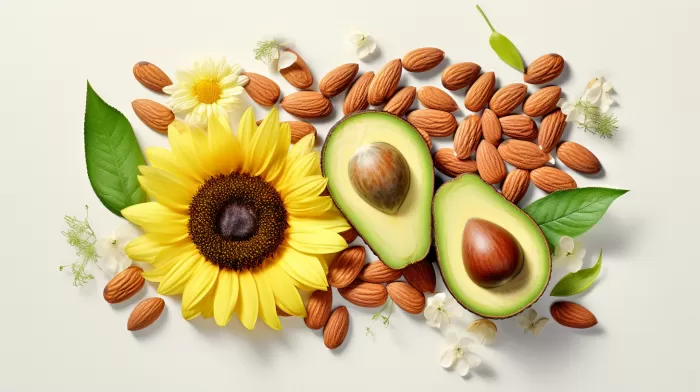In recent years, many so-called nutrition experts have claimed that vitamin supplements are nothing but a waste of money. However, research conducted at Oregon State University’s Linus Pauling Institute has shown that a staggering 90 percent of Americans don’t consume enough vitamin E through food sources alone. Furthermore, having enough vitamin E in your bloodstream doesn’t guarantee that it’s reaching the organs that require it the most, such as the brain, eyes, skin, artery walls, and liver.
Vitamin E is a potent, fat-soluble antioxidant that plays a crucial role in defending cell membranes from damage by free radicals. It also helps protect nerves and supports overall nerve function. To help your body deliver essential amounts of vitamin E, it’s important to ensure you’re eating the right foods, such as sunflower seeds, almonds, avocados, spinach, and other dark leafy greens.
The implications of LDL cholesterol and triglycerides
The problem lies with the fact that most of us have excessive amounts of bad cholesterol (LDL) and triglycerides – fats made from all the sweets we eat – floating around our bloodstream. This restricts the circulation of vitamin E and prevents it from reaching the organs that need it the most. In fact, elevated LDL and triglyceride levels in the blood lead to increased inflammation within the body, marking the need for higher amounts of vitamin E to protect the organs that are under oxidative attack.
Lowering LDL cholesterol and increasing healthy HDL cholesterol is one of the most effective ways to address malabsorption of essential antioxidants like vitamin E. Contrary to popular belief, cholesterol alone does not cause heart disease, but having too much LDL can have numerous negative impacts on your health.
How to boost your vitamin E intake
Losing excess fat, exercising regularly, and maintaining a balanced diet that includes plenty of fruits and vegetables can significantly help in improving your cholesterol profile, and in turn, your ability to circulate and absorb vitamin E. By doing so, you can prevent essential levels of vitamin E from remaining trapped in the bloodstream and ensure that it effectively delivers its antioxidant properties to the tissues that need it the most.
Vitamin E supplements: what to keep in mind
While consuming the right foods is the ideal way to obtain adequate amounts of vitamin E, supplements may sometimes be necessary, especially for those who struggle to maintain a healthy diet. If you choose to supplement your vitamin E levels, make sure to opt for natural, full-spectrum vitamin E supplements that contain ‘mixed tocopherols and tocotrienols’ – a total of 8 related compounds (four tocopherols and four tocotrienols) that make up the entirety of vitamin E.
It is vital to avoid synthetic vitamin E that only has a single tocopherol, such as dl-alpha tocopherol. Consuming vitamin E supplements that lack this full range of tocopherols and tocotrienols can potentially negate the benefits of the antioxidant, or worse, hinder your body’s ability to effectively circulate and absorb the essential micronutrient.
In conclusion, it’s crucial not to underestimate the importance of vitamin E in maintaining overall health and wellbeing. By making a conscious effort to consume vitamin E-rich foods and engaging in regular physical activity, you can ensure that your body gets the maximum benefit from this essential antioxidant. If you choose to supplement your vitamin E intake, pay close attention to the ingredients listed on the label, and always opt for natural, full-spectrum vitamin E products.



